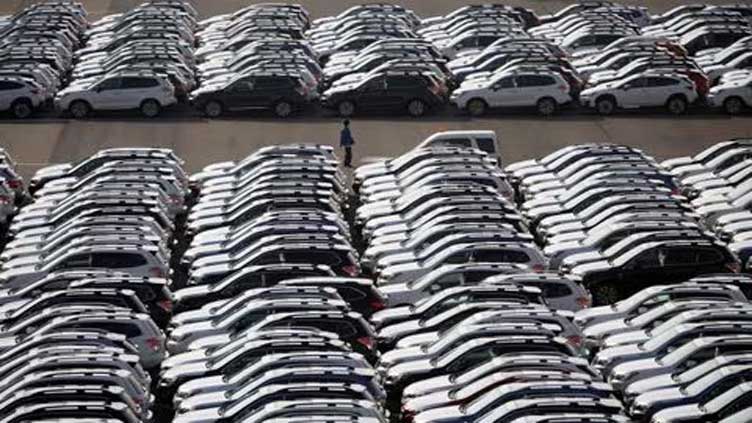Japan's export slows as China, global downturn risks loom

Business
Japan's export slows as China, global downturn risks loom
TOKYO (Reuters) - Japanese exports grew for a second straight month in October but at a sharply slower pace due to slumping China-bound shipments of chips and steel, as weakening external demand takes its toll on the trade-reliant economy.
Exports rose 1.6% in October from a year earlier, Ministry of Finance data showed on Thursday, faster than a 1.2% increase expected by economists in a Reuters poll but slower than the 4.3% rise in September.
Weak exports have complicated Japan's efforts to spur economic growth with sluggish domestic demand also weighing on the post-pandemic recovery.
"With China's economy crawling at the bottom and demand from the United States and Europe slowing, we need to wait until the middle of next year for exports to bottom out," said Atsushi Takeda, chief economist at Itochu Economic Research Institute.
"Until then, Japan would need to count on consumption and capital expenditure to pick up the slack."
With the absence of growth drivers, some economists warn Japan could fall into a technical recession, defined as two straight quarters of contraction.
Japan's economy weakened in July-September, snapping two straight quarters of expansion on soft consumption and exports, data showed on Wednesday.
By destination, exports to China, Japan's largest trading partner, fell 4.0% year-on-year in October, posting 11 straight months of declines.
Exports to the United States, Japan's key ally, rose 8.4% in the year to October, as demand for hybrid vehicles and mining and construction machinery helped drive the value of U.S.-bound shipments to its largest on record.
Imports fell 12.5% in the year to October, broadly in line with the median estimate for a 12.2% decrease.
The trade balance came to a deficit of 662.5 billion yen ($4.38 billion), versus the median estimate for a 735.7 billion yen deficit.
Separate data from the Cabinet Office showed Japan's core machinery orders, regarded as a leading indicator of capital spending, rose 1.4% in September from the previous month, faster than the 0.9% growth expected.
In one positive sign for a domestic recovery, manufacturers surveyed by the Cabinet Office expect core orders to rise 0.5% in October-December, after a 1.8% drop in the previous quarter.


